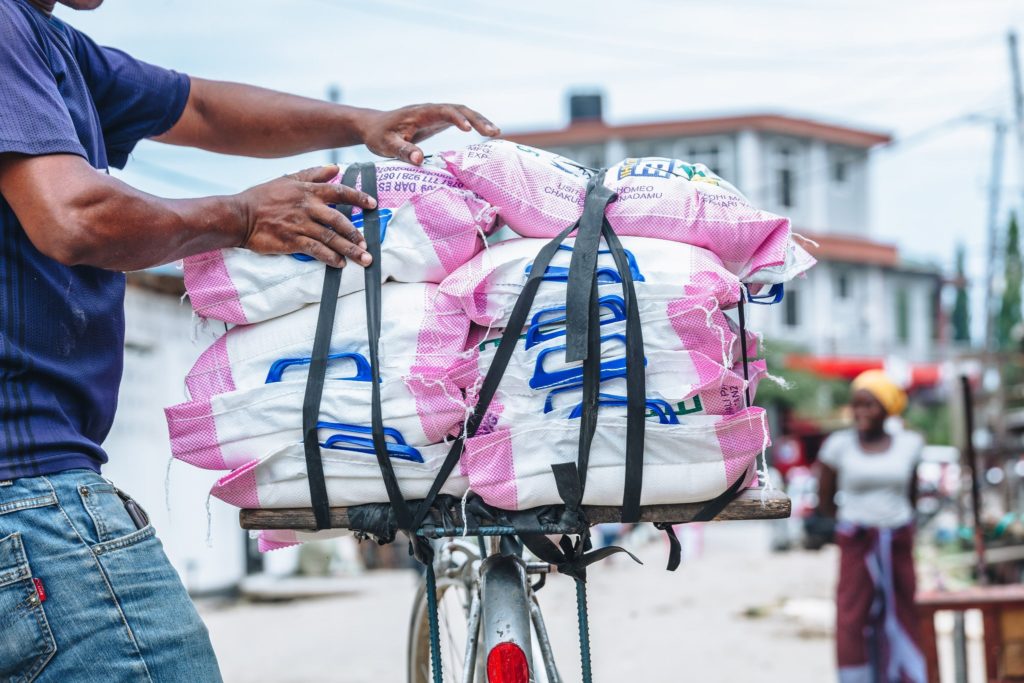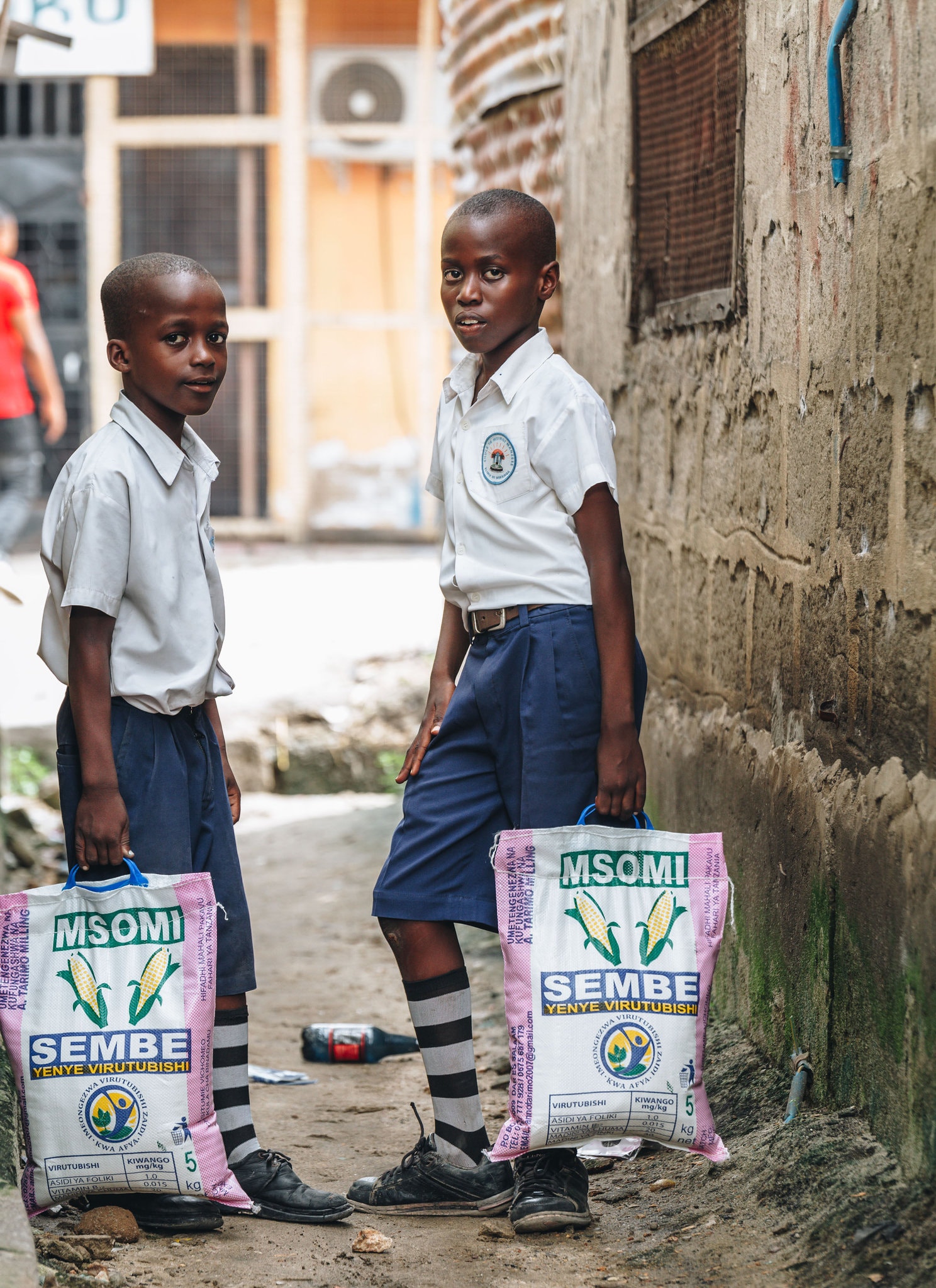How a social entrepreneur ends malnutrition at virtually no costs

Fortifying staple foods with essential vitamins and minerals is considered the most effective way to eliminate malnutrition. The social business Sanku in Tanzania has found a way to empower local village mills in the most remote places to fortify corn flour at no additional costs.
It is unusual for a non-profit start-up to be involved in fortifying staple foods. There are major international initiatives such as the Global Alliance for the Improvement of Nutrition, which work with governments, large multinational corporations and programs such as the World Food Programme. In Tanzania, where the social enterprise Sanku is based, the government is also committed to eliminating malnutrition. Since 2011, for example, all grain mills have been required to fortify the maize flour which almost every family uses on a daily basis with a mixture of iron, zinc, vitamin B12 and folate. The impact is negligible. One third of the children in Tanzania are considered malnourished. The challenge ist that government programs do not reach the many small pop-and-mum village mills, which are claimed to account for 87% of the production.
This is where the social enterprise Sanku comes into place. The company has been developed within the non-profit organization “Project Healthy Children” by Felix Brooks-church and is based in Dar es Salaam, Tanzania. He identified a way to make food fortification attractive for the many small village mills. The Sanku model is based on two pillars:
- an easy-to-handle dosifier to add the blend the right amount of nutrients into the flour
- a business model, which allows the miller to operate the scheme at no additional costs.
The dosifier developed by Sanku can be retrofitted to all existing small village mills. Thanks to a partnership with Vodafone’s “Internet of Things”-Initiative, the machines are remote-controlled. This allows Sanku to monitor the scheme, to coordinate and maintenance or repairs and to measure the production and thus the social impact they achieve.

School feeding programs are an important part of Sanku’s work – if schools are opened.
Sanku’s business model is straightforward. With the help of a little trick, the company manages to keep the whole system cost-neutral both for the millers and the end consumers. The food supplements themselves do not cost much. However, the market for staple foods is so price-sensitive that even a minimal price premium of a few cents would not be accepted by the customers. Partly because people themselves do not have the purchasing power, partly because people particularly in the rural areas know little about the respective nutrients and have no access to reliable sources of information.
Sanku solves the problem with a simple and ingenious business idea: the company supplies the grain mills not only with the nutrients but also with the shiny flour bags which are used to sell the flour later on. Sanku benefits from economies of scale as it orders large quantity of bags and sells the bags to the local millers for the same price they would have paid for normal bags. Sanku uses the profit margin to subsidize the purchase of the the nutrients for the food fortification and thus manages to run the whole scheme cost-neutral. Moreover, the customer immediately recognizes the enriched flour by the color of the bags. These are pink striped.
«Food fortification is a really hard concept to sell. But everybody knows what quality is.» Felix Brooks-Church, Founder Sanku – Project Healthy Children
There is a further advantage. While bags of grain used in village mills often look shabby, Sanku’s bags of grain are clean, shiny and also carry the logo of the national food authority that people trust.
Sanku nevertheless incurs costs: The company provides the dosing equipment free of charge and hence needs to finance them – roughly 2,500 USD per mill, which on average serves some 5,000 people. This amounts to about 50 cents per person. Although this is not much, it is still the biggest bottleneck for growth at the moment. In the end it is all about scale: Sanku seeks to reach one hundred million people by 2025.

The current pandemic dangerously exacerbates the problem of malnutrition. Not only does the crisis leads to a situation where more and more people simply cannot afford to buy food. With the closing of schools, many children lost access to the only proper meal they get every day, which is provided by the official school meal programs.
As a social enterprise, Sanku tries to focus on the areas with the greatest social impact. For example, 37 of Sanku’s partner mills supply state school lunch programs during normal times. In addition, Sanku has launched a “Refugee at Risk Communities” program and supports the World Food Program, among others to fortify food for Burundian and Congolese refugees in Tanzania. Sanku’s work is needed today more than ever.
Do you have questions or suggestions? Write us!
Dr Andreas Renner, Co-Founder Gexsi: andreas@gexsi.com
Become part of a community, which positively changes the world!
Set a sign and make Gexsi your search engine! It takes less than 60 seconds to download the app or the desktop extension.
![]() Gexsi – the search engine for a better world
Gexsi – the search engine for a better world
Your search generates money for projects which make the world a better place.

